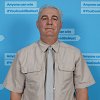The youth of today are having their educations compromised by cell phones, the BC United Party reckons.
If elected, BC United party leader Kevin Falcon promises to ban the use of the devices in classrooms from kindergarten to grade 12.
“Despite mounting evidence highlighting the negative impacts of cellphone use in classrooms, increasing concerns from parents and teachers, and other provinces like Quebec taking the lead, David Eby and the NDP have failed to act,” Falcon said in a media release. “It’s clear to parents how mobile phone usage is negatively impacting our kids’ educations.”
Falcon cited an assessment that shows literacy rates and math scores are worsening across the province, with BC scoring lower than Alberta.
Central Okanagan Superintendent Kevin Kaardal disagrees with a province-wide blanket ban, as there’s already a technology policy in place.
“Teachers can make decisions in their classrooms,” he said. “They can put them in caddies, or they can say, ‘We’re going to use them today -- please go to this website.”

Kaardal says phones are tools that have become “ubiquitous in our society,” and students should be taught how to use them appropriately.
“I don’t see a need for change.”
High school students at SD23 and SD67 are given access to wifi at school.
At Okanagan Skaha School District 67, covering Penticton and Summerland, a cell phone ban would only impact high school students, as there’s already one in place for elementary and middle schools.
“At secondary schools, our administrators and teachers have discretion of providing direction to students as to when they may use their phones during instructional time,” superintendent Todd Manuel said in an email. “There may be times that secondary teachers allow students to access their phones as part of particular lessons, research or learning activities.”
But Manuel wants secondary teachers to have discretion over the matter because he doesn’t see the issue as black-and-white.
“Cell phones, like many digital tools, can have both positive and negative potential impacts on all of us,” Manuel said.
As cell phones evolved into smart phones, students gained access to profound learning resources. But simultaneously that came with the “extremely addictive” nature of social media, as well as access to “those that may wish to do harm in some way to our youth.”
“What is critically important from an educational perspective is that we continue to teach students digital literacy skills and engage in conversations with students around the digital tools that are important to them so that we can better help them navigate them safely and responsibly,” Manuel said.
Nevertheless, the BC United Party believes a cell phone ban is a good idea. In the same announcement, the party said it also wants to bring back letter grades.
“We owe our kids that,” the release says.
















